The importance of keeping your knives sharp: David Morrison keeps an edge on the market
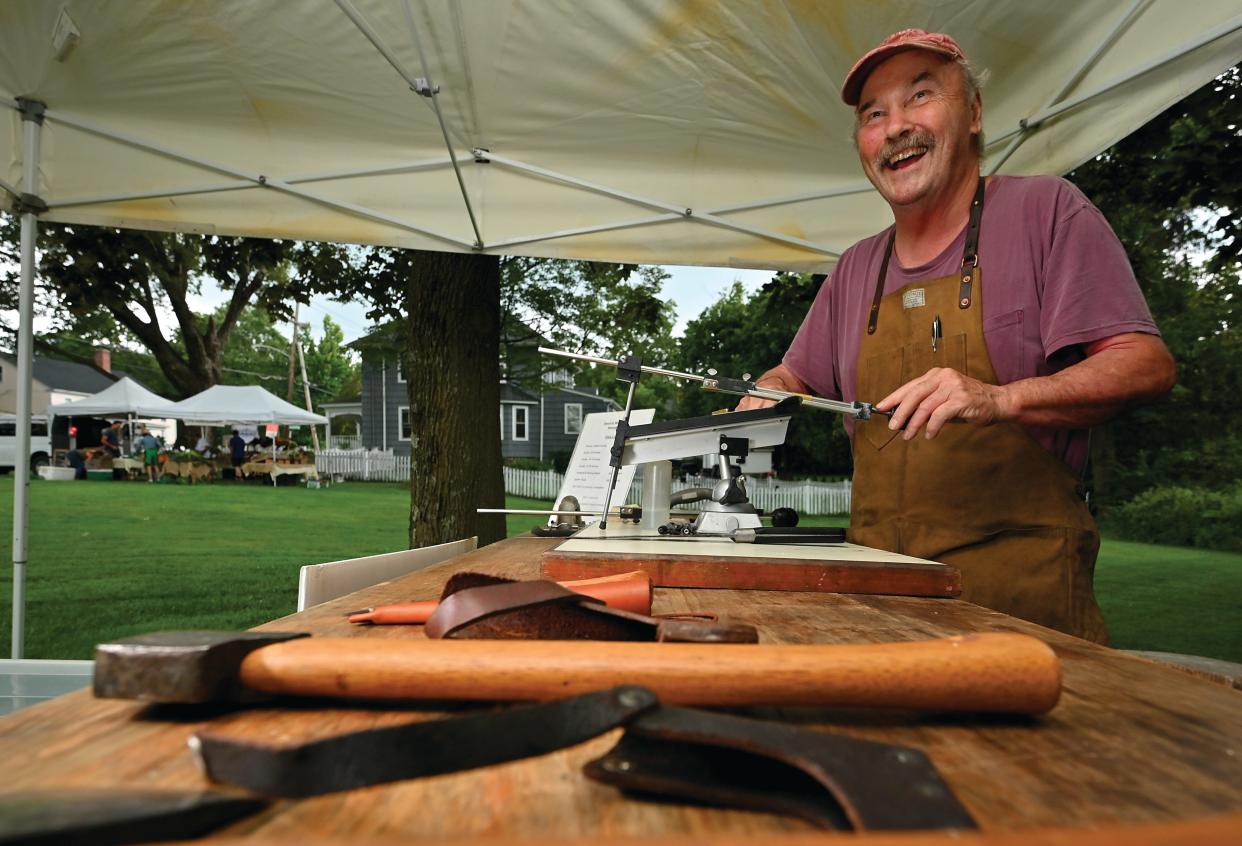
“A dull knife is much more dangerous than a sharp one,” said David Morrison, whose credibility has been honed over decades of experience with all varieties of blades. “With a dull knife you’re putting more force on the blade. If it slips, you’re no longer in control.”
Ever since he was a young Boy Scout in Sudbury, where he learned how to sharpen his pocketknife over a whetstone, Morrison has been fascinated with the geometry and precision of blade sharpening. He maintained that interest over a lifetime of work in the fields of arts and crafts in places that ranged from the wilderness to urban settings.
“As Boy Scouts, we’d spend hours rubbing our knives on whetstones," Morrison recalled. In the process, he discovered what he calls the sharpening paradox: “If you’re not at the correct angle, you can rub for hours without making the blade sharper; in fact, you’re likely to make it duller.”
Years later, as a guide in the Boundary Waters Canoe Area Wilderness in northern Minnesota, the importance of a sharp blade was reinforced when Morrison worked with an ax. “To see how sharp an ax was, the guides would test it by using it as a shaver,” he said.
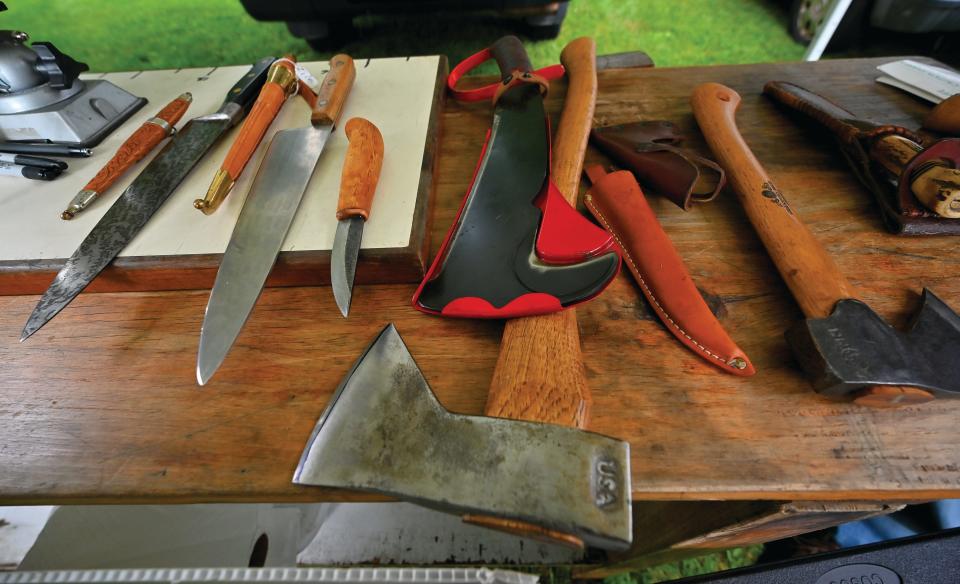
Morrison studied photography in New York and in California with the famed Western photographer Ansel Adams. He worked as a photographer for the daily newspaper The Framingham News and later became a painting contractor. He started collecting carpentry tools, “so I could fix what carpenters overlooked before starting my painting projects,” he said.
His earlier experience as a wilderness guide taught him the importance of taking care of his tools, so Morrison taught himself how to sharpen the collection of planes and chisels he was acquiring. He uses a variety of sharpening stones and ceramic waterstones. “I have them from 120 grit (a coarse level) to 30,000 grit (super fine),” he said. Morrison sharpens his own kitchen knives with a 1,000 grit stone.
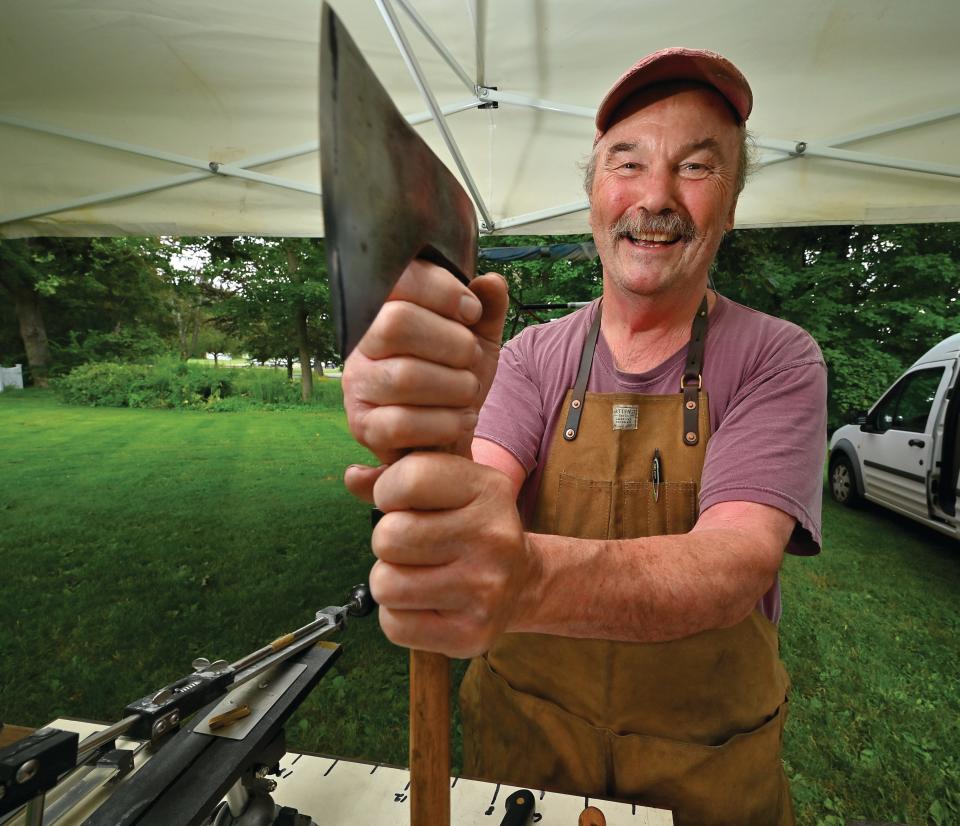
About a decade ago, he decided to showcase his sharpening skills at the Westminster Farmers Market, where his genial manner and attention to detail attracted a steady stream of customers who brought him their dull blades. He now is at the Holden Farmers Market on Tuesdays from the end of May through October.
Morrison acknowledged that he’s sharpened high-end cutlery for several professional chefs and many talented home chefs. But don’t fear if you’re a novice with an inexpensive knife; Morrison is patient and kind, never condescending.
“People struggle for years with dull knives; some have never been sharpened,” he said.
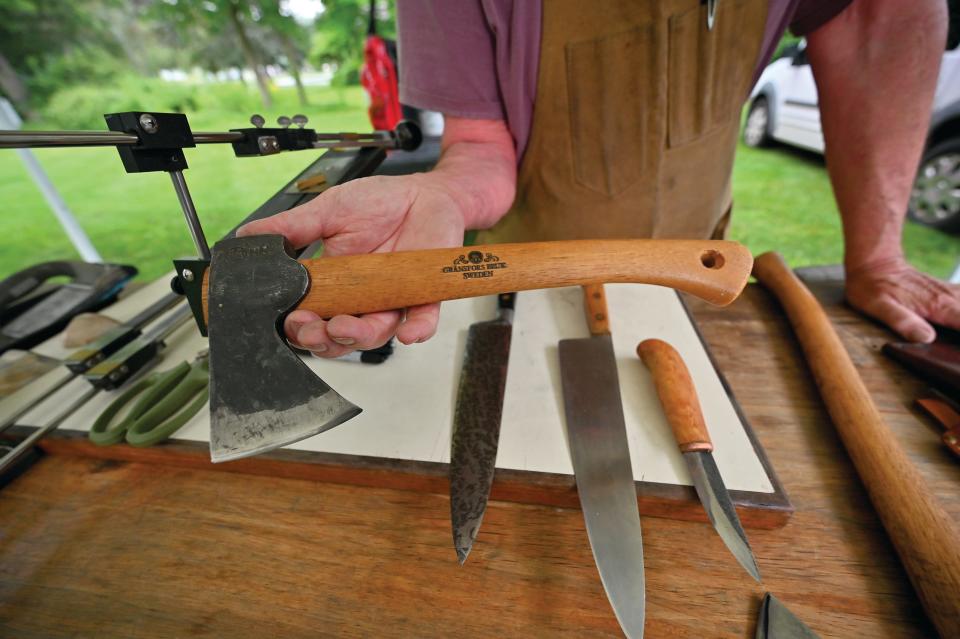
A chef once told him that using a dull knife crushes instead of cuts and as a result “you’re leaving nutrition on the cutting board.”
Morrison’s approach to the craft of blade sharpening is classic. He doesn’t use power tools. Instead, he works freehand, using natural sharpening stones and a professional model jig. The jig has an adjustable table to keep the blade in place and a holder for the sharpening stone that locks it in at the correct angle.
“I like that it’s not noisy like an electric grinder; it’s a hand tool,” he said.
Demonstrating with a chef’s cleaver, Morrison showed one of his tricks of the trade. He used a marker to draw on the blade, filling in and highlighting the bevel — that’s the angle that leads to the edge of the blade — to guide him in removing the worn edge. He took out a sharpening stone, slipped it into the stone holder and adjusted the angle on the jig. For most kitchen knives, he said, the best angle for sharpening is 19 degrees; for a cleaver, though, it’s about 12 degrees. Outdoor and sports knife blades are sharpened at angles ranging from 22 to 24 degrees.
With a steady back-and-forth motion that makes a soft, swishing sound, Morrison guided the sharpening stone across the blade at the correct angle. “It’s meditative,” he said.
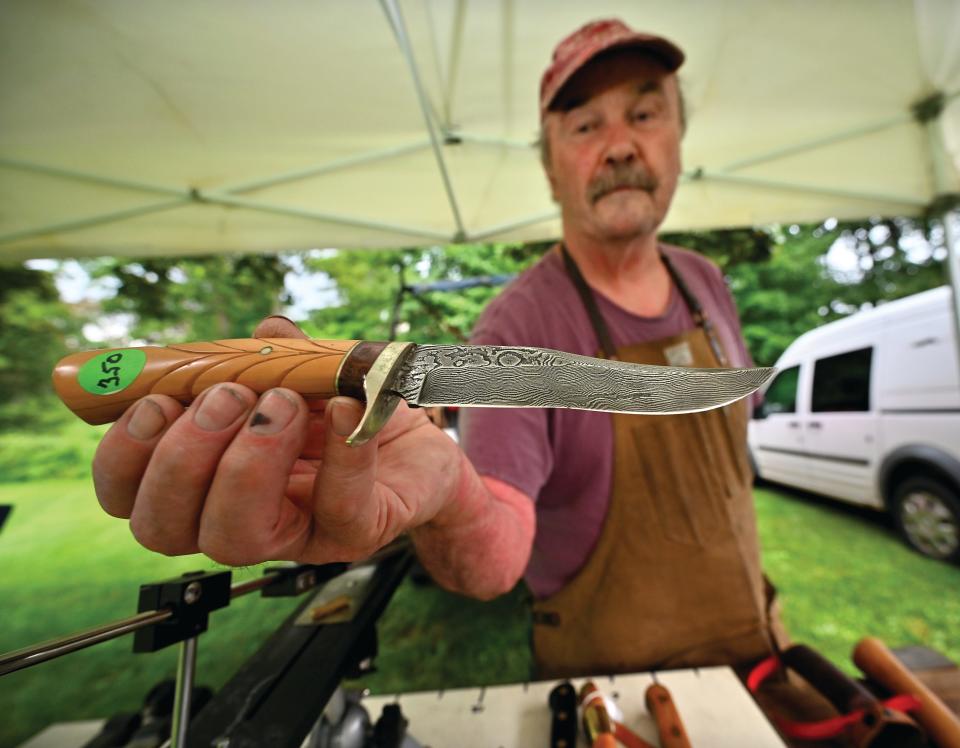
As the worn edge is removed, a raised edge formed on the other side of the blade. This is called a burr and raising it is the important first step in sharpening. He flipped the cleaver over and repeated the process on the other side.
Morrison pointed out that most knives have a double bevel — one on each side of the blade’s edge. “The goal is to have the plane of both bevels meet,” he said. After a few, final light feathering strokes from the sharpening stone he carefully slided a finger along the edge of the blade. “I can feel if it’s done,” he said.
The final step is stropping, which removes the burr and puts a final polish on the blade. Most stropping is done on a leather strip, but Morrison used a handmade stropping block made of ultralight balsa wood with soft piece of denim fastened to it. He already spread polishing compound on the denim and after a few quick passes of the cleaver across the stopping block, it’s razor sharp. Sharp enough that the blade slipped through a piece of paper as if it were slicing prosciutto in a deli.
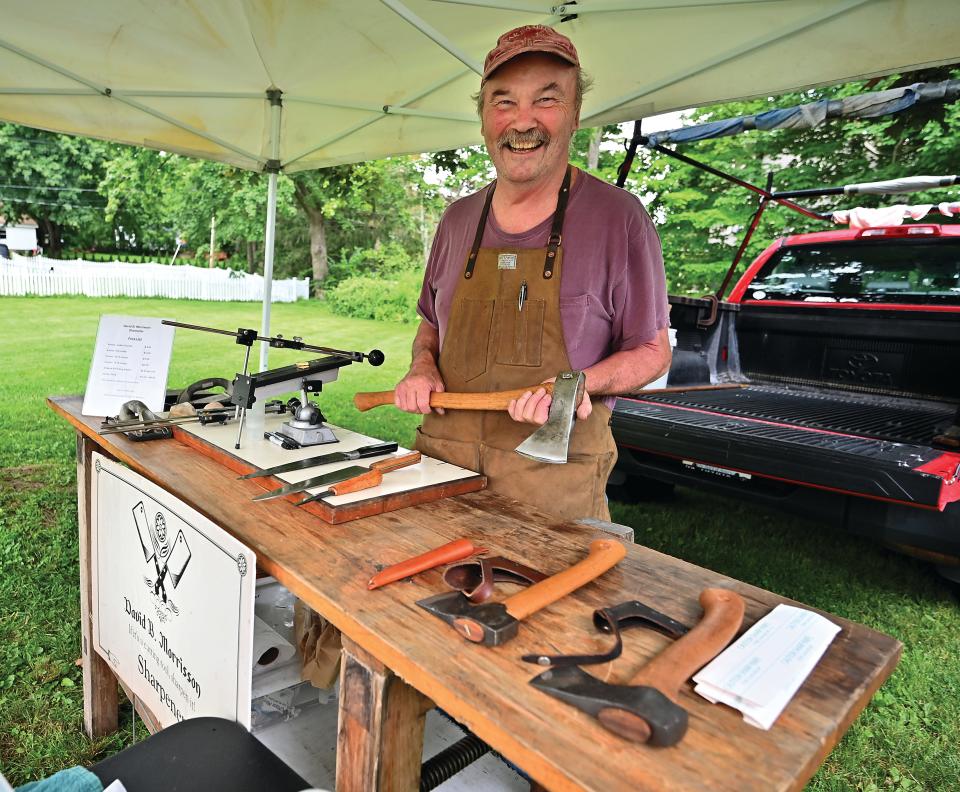
After a knife is sharp, he protects the edge by slipping the blade into a cardboard sleeve.
“Don’t ever leave your knives loose in a drawer,” he advised. A knife block is another good way to protect knife blades.
“If you treat your knife well and keep the blade sharp, it can last 150 years,” Morrison said.
This article originally appeared on Telegram & Gazette: Blade expert David Morrison shares importance of keeping knives sharp

